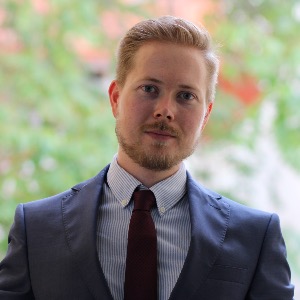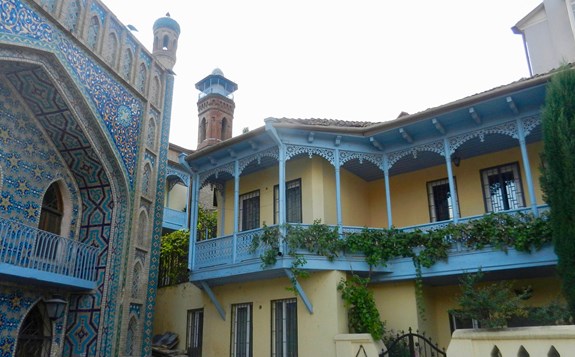We use cookies on this website. Cookies help us deliver the best experience on our website. Read about cookies.
-
- Education
- Education
- Programmes and courses
- Applications and admissions
- Tuition fees
- Scholarships
- Exchange studies at Malmö University
- Study Guidance
-
- After admission
- After admission
- Moving to Malmö
- Pre-orientation
- Arrival guide
-
- About studies at Malmö University
- About studies at Malmö University
- Why choose Malmö University
- Understanding university studies
- Connect with our students
On the page -
- Research
- Research
-
- Doctoral studies
- Doctoral studies
- Doctoral courses
-
- Doctoral schools
- Doctoral schools
- Doctoral school: Education, Learning and Globalisation
- Doctoral school: The National Research School for Professionals in Social Services
- Doctoral school: Learning in Multicultural Societal Contexts
- Doctoral school: ComBine
- Doctoral school: Swedish National Graduate School in Science and Technology Education Research
- Doctoral school: Relevancing Mathematics and Science Education (RelMaS)
- Doctoral school: Sustainable Movement Education
- Doctoral school: Finding ways in a time of great future challenges (FinnFram)
- Doctoral school: Pedagogy and Vocational Skills
- Doctoral school: Culturally Empowering Education through Language and Literature
- Research subjects
-
- Research centres
- Research centres
- Biofilms Research Centre for Biointerfaces
- Citizen Health
- Imagining and Co-Creating Futures
- Institute for Urban Research
- Malmö Institute for Migration Studies
- Literacy and Inclusive Teaching
- Centre for Work Life Studies
- Sustainable Digitalisation Research Centre
- Centre for Sexology and Sexuality Studies
-
- Research publications
- Research publications
- Search publications
- Malmö University Press
- Research events
- Participate in a research study
- Coffee Break Quiz
On the page -
- Collaboration and Innovation
- Collaboration and Innovation
- Innovation
- Collaboration with students
-
- Collaborate with researchers
- Collaborate with researchers
- Labs and facilities
- Culture collaboration
- Support Malmö University
-
- Alumni & Friends
- Alumni & Friends
- Graduation and alumni network
On the page -
- About us
- About us
-
- Faculties and departments
- Faculties and departments
-
- Faculty of Culture and Society
- Faculty of Culture and Society
- Department of Urban Studies
- Department of Global Political Studies
- School of Arts and Communication
-
- Faculty of Education and Society
- Faculty of Education and Society
- Department of Childhood, Education and Society
- Department of Sports Sciences
- Department of Natural Science, Mathematics and Society
- Department of School Development and Leadership
- Department of Culture, Languages and Media
- Department of Society, Culture and Identity
-
- Faculty of Technology and Society
- Faculty of Technology and Society
- Department of Computer Science and Media Technology
- Department of Materials Science and Applied Mathematics
-
- Faculty of Odontology
- Faculty of Odontology
- Master's programmes in Dental Science
- University Dental Clinic
- Management and decision-making paths
-
- Vision, objectives and strategy 2025
- Vision, objectives and strategy 2025
- Global engagement
- Sustainability
- Widened recruitment and participation
- Quality assurance work at the University
-
- Malmö Academic Choir and Orchestra
- Malmö Academic Choir and Orchestra
- Student work – video pieces
-
- Annual Academic Celebration
- Annual Academic Celebration
- Academic traditions
- Meet our new professors
- The University in a troubled world
On the page

Christofer
Berglund
Associate Professor/Senior lecturer
christofer.berglund@mau.se
+46 40 665 78 12
orcid.org/0000-0002-9923-0775
Presentation
Christofer Berglund (Docent) conducts research in the subfields of comparative politics and international relations with a thematic focus on: ethnic conflicts; strategic studies; and competitive authoritarianism. He specializes in post-Soviet Eurasia.
In his PhD, Berglund examined the efforts of the Georgian government following the Rose Revolution to integrate two ethnic borderlands. He has worked as an analyst for the Swedish Defence Research Agency (FOI), as a SYLFF postdoc at the Department of Government, Uppsala University, and as researcher at the Department of Security Studies, Charles University.
He is principal investigator for the Formas-funded project "Planning for Integration: Landscapes of Power in Borderland Governance" [InBorder], which compares the mechanisms through which transborder minorities are integrated into their respective host states, Estonia, Georgia, and Azerbaijan. Berglund is also tied to the School of Social Sciences, Södertörn University. From there, he leads a project funded by Östersjöstiftelsen: "Conscription as Political Socialization in Divided Societies? Evidence from post-Soviet Estonia and post-independence Finland" [CoDS].
His recent articles are published in Armed Forces and Society, Post-Soviet Affairs, Problems of Post-Communism and Journal of Political and Military Sociology. He has also contributed chapters to several books, and written for Foreign Policy and Jane's Intelligence Review.
Berglund is associated with the International Centre for Defence and Security (ICDS) in Tallinn. He has earlier been a Fulbright scholar at the Davis Center for Russian and Eurasian Studies, Harvard University, as well as a visiting scholar at numerous research institutes, among them the Georgian Foundation for Strategic and International Studies (GFSIS) in Tbilisi and the Norwegian Institute of International Affairs (NUPI) in Oslo.
Publications
-
2025 | Article in journal
Brothers in Arms? Estonia's Defense Forces and the Trojan Horse Dilemma
Christofer Berglund
-
2025 | Article in journal
Ethnic Stacking in the Russian Armed Forces?: Findings from a Leaked Dataset
Jesse Driscoll, David Sichinava, Christofer Berglund
-
2024 | Article in journal
Sons of the Soil or Servants of the Empire?: Profiling the Guardians of Separatism in Abkhazia and South Ossetia
Christofer Berglund, Ketevan Bolkvadze
-
2023 | Article in journal
Fighting for the (Step)motherland? Predictors of Defense Willingness in Estonia’s Post-Soviet Generation
Christofer Berglund, Kairi Kasearu, Juhan Kivirähk
-
2021 | Article in journal
Sticking Together?: Georgia’s “Beached” Armenians Between Mobilization and Acculturation
Christofer Berglund, Marko Dragojevic, Timothy Blauvelt
